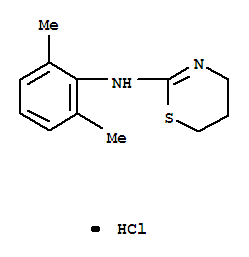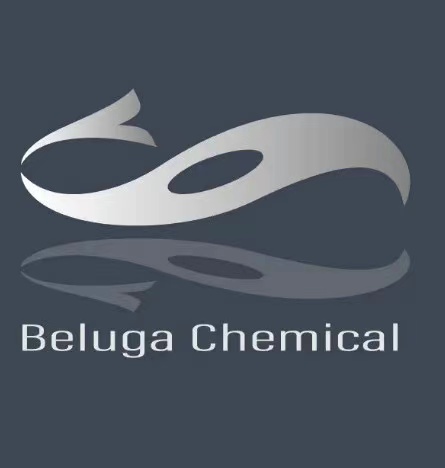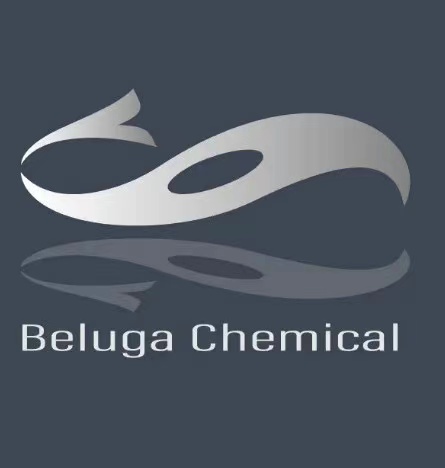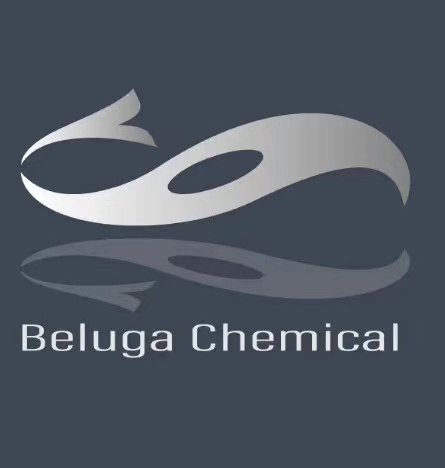
Xylazine hydrochloride
- CasNo:23076-35-9
- Molecular Formula:C12H16N2S.HCl
- Purity:
- Molecular Weight:
Product Details
|
23076-35-9 Name |
|
|
Name |
Xylazine hydrochloride |
|
Synonym |
2-[2,6-DIMETHYLPHENYLAMINO]-4H-5,6-DIHYDROTHIAZINE HYDROCHLORIDE;2-[(2,6-DIMETHYLPHENYL)AMINO]-5,6-DIHYDRO-4H-1,3-THIAZINE HYDROCHLORIDE;2-(2,6-DIMETHYLPHENYLAMINO)-5,6-DIHYDRO-4H-THIAZINE HYDROCHLORIDE;XYLAZINE HYDROCHLORIDE VETRANAL, 100 MG;XYLAZINE HYDROCHLORIDE, USP STANDARD;XYLAZINE HYDROCHLORIDE, EP STANDARD;XYLAZINE HYDROCHLORIDE, MM(CRM STANDARD);XYLAZINE HYDROCHLORIDE, IMP. A (EP): 2,6-DIMETHYLANILINE MM(CRM STANDARD) |
|
23076-35-9 Biological Activity |
|
|
Description |
Xylazine Hydrochloride is α2 class of adrenergic receptor agonist.Target: Adrenergic ReceptorXylazine is a drug that is used for sedation, anesthesia, muscle relaxation, and analgesia in animals such as horses, cattle and other non-human mammals. An analogue of clonidine, it is an agonist at the α2 class of adrenergic receptor. Xylazine has recently emerged as a recreational drug, especially in Puerto Rico [1]. Administration of xylazine (0.17 mg/kg of body weight, diluted to a 10-ml volume, using 0.9% NaCl) induced approximately 2.5 hours of local analgesia without apparent side effects. Higher doses of xylazine caused mild hind limb ataxia. Administration of lidocaine induced a similar duration of analgesia, with severe hind limb ataxia (100% incidence). We concluded that xylazine given by epidural injection results in safe, effective perineal analgesia in horses [2]. |
|
Related Catalog |
Signaling Pathways >> GPCR/G Protein >> Adrenergic Receptor Research Areas >> Neurological Disease |
|
References |
[1]. Reyes, J.C., et al., The emerging of xylazine as a new drug of abuse and its health consequences among drug users in Puerto Rico. J Urban Health, 2012. 89(3): p. 519-26. [2]. Hsu, W.H., Xylazine-induced depression and its antagonism by alpha adrenergic blocking agents. J Pharmacol Exp Ther, 1981. 218(1): p. 188-92. |
|
23076-35-9 Chemical & Physical Properties |
|
|
Melting point |
150-164?C (dec.) |
|
Boiling point |
334.2ºC at 760mmHg |
|
Density |
1.15g/cm3 |
|
Molecular Formula |
C12H17ClN2S |
|
Molecular Weight |
256.795 |
|
Flash Point |
155.9ºC |
|
PSA |
49.69000 |
|
LogP |
3.51880 |
|
Exact Mass |
256.080109 |
|
Vapour Pressure |
0.00013mmHg at 25°C |
|
Storage condition |
−20°C |
|
23076-35-9 Biochem/physiol Actions |
|
Xylazine is used as a sedative in goats as it is safe, active and a cheap drug. It is a centrally acting drug, which exhibits muscle relaxant and analgesic properties. |
|
23076-35-9 Uses |
|
Xylazine hydrochloride is α2 class of adrenergic receptor agonist. As with other α2 agonists, adverse effects include bradycardia, conduction disturbances, and myocardial depression. It is a clonidine analoque. It acts on presynaptic and postsynaptic receptors of the central and peripheral nervous systems. It is used as a sedative, analgesic, muscle relaxant. It is also used to anesthetize rats/mice. |








